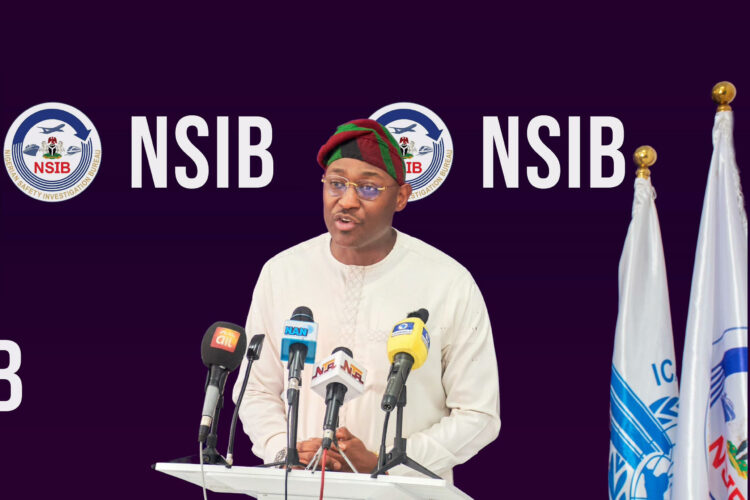The Nigerian Safety Investigation Bureau (NSIB) has called on the Nigerian Maritime Administration and Safety Agency (NIMASA), National Inland Waterways Authority (NIWA), Nigerian Ports Authority (NPA) National Oil Spill Detection and Response Agency (NOSDRA), and the Nigerian Railway Corporation (NRC) to start building internal capacity for the adoption and implementation of NSIB safety recommendations.
This was disclosed by the director general of NSIB, Capt. Alex Badeh Jnr, against the backdrop of finalising two critical regulatory frameworks, the NSIB Casualty Investigation Regulations for the Maritime Mode of Transport and the Rail and Track Accident Investigation Regulations for the Rail sector.
According to Capt. Badeh, NSIB remains responsible for conducting independent investigations and issuing safety recommendations while the responsibility for implementation lies with other critical agencies.
He stated further that the effectiveness of any investigation is measured not by how well it is written but by how well it is implemented by designated agencies.
“Safety recommendations are not mere reports; they are calls to action. The effectiveness of any investigation is measured not by how well it is written but by how well it is implemented. We urge our partner agencies to view this as a shared mission for national safety,” Badeh said.
The NSIB believes that the lessons learned from marine, rail, and air accidents must not be siloed but rather used to form a national benchmark for proactive safety strategies.
He, however, stated that in the coming weeks, as the regulations are finalised and presented to stakeholders, the Bureau would continue to sensitise agencies and the public to their roles in transforming Nigeria’s transport safety landscape.
“Indeed, as Nigeria continues to expand its transport infrastructure in pursuit of economic development, the role of safety cannot be overstated. The NSIB stands ready, not only as an investigator of past tragedies but as a catalyst for a safer and more resilient transport future for all Nigerians.”
The Bureau further reiterated its resolute commitment to enhancing transportation safety across all modes in Nigeria – air, marine, rail, and other forms of land transport, through a standardised, independent, and forward-looking investigative approach.
With its expanded mandate as enshrined in the NSIB Act 2022, the Bureau is pioneering a new era of multimodal safety oversight, underpinned by globally recognised investigative practices and a clear mission: to prevent accidents by learning from them.
The maritime regulations are aligned with the IMO Casualty Investigation Code, establishing a standardised process for investigating accidents on inland waterways, ports, and Nigerian-flagged vessels. The rail investigation regulations, likewise, are being developed with due consideration for the unique operational structure and geographic scope of the Nigerian railway system, while referencing international norms in rail safety investigation.
These developments build upon the NSIB’s successful alignment with ICAO Annexe 13 for air accident investigation, a framework that has guided aviation safety improvement worldwide and continues to inform Nigeria’s aviation sector reforms. By adopting this harmonised, mode-agnostic approach, the Bureau aims to create a unified culture of safety across the nation’s transport infrastructure.











